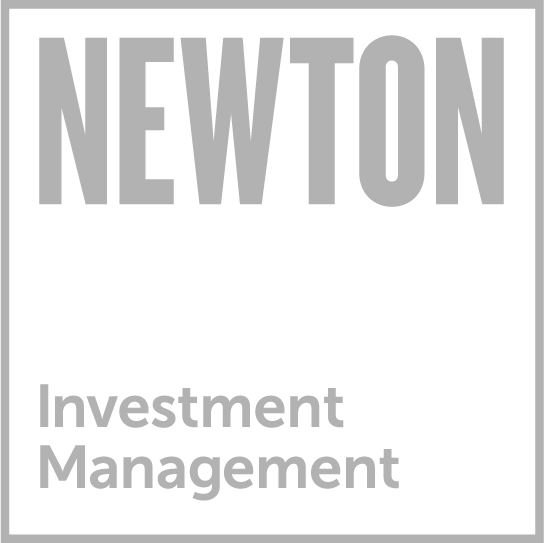September 2023
Japan’s economic growth has captured attention recently, but the Walter Scott Investment team says the country has long been the home to industry leaders. Here they highlight several leading companies poised for long-term growth.
Highlights
- A shrinking labor force and rising inflation are causing more companies to turn to automation – an area where Japan leads
- Electric vehicle (EV) battery demand is higher than current supply levels – and this market is expected to grow
‘Buy Japan’ has emerged as something of a market refrain in recent months. The re-emergence of inflation after a decades long-struggle with stagnant prices, alongside some impressive GDP numbers (up 6% in the second quarter of 20231) and government attempts to improve corporate governance have raised hopes that the Japanese economy and its stock market may be on the brink of a renaissance.
While we welcome this renewed enthusiasm, over the many decades we’ve been investing in Japan our perspective on investment opportunities has never been defined by the nature of the economic backdrop. Had it been, we might not have found much cause for optimism given the ‘lost decades’ that followed the bursting of the country’s epic asset bubble in the early 1990s. Rather, we’ve always considered opportunity at the company level, understanding that a lack of economic vigor is often no barrier to corporate excellence. Viewed through this lens, Japan has always been and continues to be a fertile hunting ground for investors in search of high-quality, market-leading companies.
No problem looms as large for Japan as demographics. More elderly people and a declining working-age population are not a recipe for economic dynamism. And while the country is not alone in facing this demographic challenge, nowhere is it more acutely felt. But a shrinking labor force is leading more and more companies across multiple industries to turn to automation, an area in which Japan is the acknowledged global leader. If people are in short supply, bring in the robots!
Shaping the global economy
We believe nobody encapsulates Japan’s talent for automation more than Fanuc, the world’s leading manufacturer of computerized numerical controls and industrial robotics. A relentless innovator since its founding in the 1950s, Fanuc has faced challenges in recent years with trade wars, Covid-19 and supply chain disruption, but a visit to the company’s demonstration center in the shadow of Mount Fuji leaves one in little doubt about its technical prowess. This is a business entirely focused on helping other companies do more with less and to do it more efficiently. No surprise that tight labor markets and rising inflation globally will likely lead more and more companies to invest in automation.
Robot demand is also getting a significant boost from the transition to electric vehicles (EV). Whereas internal combustion engine manufacturing is largely a manual process, EV batteries make much greater use of robots of all sizes. Indeed, supply is unable to keep up with demand at present, given the scale of investment by EV manufacturers. Enjoying long-standing relationships with the established automakers, Fanuc is in a very strong competitive position.
EV batteries are also driving long-term growth at SMC Corporation, which makes factory automation-related pneumatic products. Inexpensive, compact and environmentally friendly, pneumatic instruments enable automation in industries as diverse as semiconductors, autos, pharmaceuticals and food. With a long-held reputation for quality and reliability, SMC is the acknowledged global leader, with a market share close to 40% 2 and an unrivalled product range.
SMC expects the EV battery market to grow rapidly over the next three years, particularly in China and South Korea. As the shift to EVs gathers pace in other regions of the world, most notably the US and Europe, SMC also stands to benefit.
Helping to tackle another challenge is Daikin Industries, the world’s leading manufacturer of air-conditioning (AC) systems. With much of the northern hemisphere enduring another hot summer, populations are unsurprisingly turning to air conditioning to help combat the stifling heat. Daikin produces highly energy-efficient systems using R32, a refrigerant developed in-house that has become the industry standard due to its low global warming potential. An even more environmentally-friendly refrigerant is expected to be rolled out commercially in the coming years.
While Daikin's lead in energy efficiency and environmental technology already stands the company in very good stead in the traditional AC space, the business is leveraging its impressive R&D capabilities to grow its share of the heat pump market. As Europe looks to mitigate its climate impact by banning combustion boilers in 2030, heat pumps are viewed by many as the logical alternative. With a strategy in place to gain first-mover advantage as a pan-European installation and servicing operation, Daikin is confident of capturing a significant share of this sizeable opportunity.
As demonstrated by Daikin, SMC and Fanuc, many of the best Japanese companies are in the vanguard of long-term structural trends that are shaping the global economy. Masters at driving efficiency and productivity improvements, and with a commitment to continuous innovation, they have carved out enviable positions in industries that should support impressive growth rates for many years to come.
1Japan Cabinet Office. August 2023.
2SMC Corporate Guide. 2023.
All investments involve risk, including the possible loss of principal. Certain investments involve greater or unique risks that should be considered along with the objectives, fees, and expenses before investing. Company information is mentioned only for informational purposes and should not be construed as investment or any other advice. The holdings listed should not be considered recommendations to buy or sell a security.
BNY Mellon Investment Management is one of the world’s leading investment management organizations, encompassing BNY Mellon’s affiliated investment management firms and global distribution companies. BNY Mellon is the corporate brand of The Bank of New York Mellon Corporation and may also be used as a generic term to reference the corporation as a whole or its various subsidiaries generally.
This material has been provided for informational purposes only and should not be construed as investment advice or a recommendation of any particular investment product, strategy, investment manager or account arrangement, and should not serve as a primary basis for investment decisions.
Prospective investors should consult a legal, tax or financial professional in order to determine whether any investment product, strategy or service is appropriate for their particular circumstances. Views expressed are those of the author stated and do not reflect views of other managers or the firm overall. Views are current as of the date of this publication and subject to change.
The information is based on current market conditions, which will fluctuate and may be superseded by subsequent market events or for other reasons. References to specific securities, asset classes and financial markets are for illustrative purposes only and are not intended to be and should not be interpreted as recommendations. Information contained herein has been obtained from sources believed to be reliable, but not guaranteed. No part of this material may be reproduced in any form, or referred to in any other publication, without express written permission.
Walter Scott & Partners Limited (“Walter Scott”) is an investment management firm authorized and regulated in the United Kingdom by the Financial Conduct Authority in the conduct of investment business. Walter Scott is also registered with the U.S. Securities and Exchange Commission (SEC) as an investment adviser. Walter Scott is a subsidiary of The Bank of New York Mellon Corporation.
Not FDIC-Insured | No Bank Guarantee | May Lose Value
© 2023 BNY Mellon Securities Corporation, distributor, 240 Greenwich Street, 9th Floor, New York, NY 10286
MARK-423872-2023-09-11






